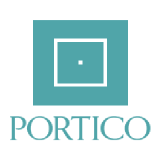fig1

Figure 1. Gut microbiota recovery after chemotherapy treatment. High-impact pharmacological treatments such as chemotherapy can cause profound disturbance of the intestinal environment, including inflammation, breakdown of mucosal barriers, and shifts in the gut microbiota composition. Depending on the initial microbiota state and other treatment-related factors, this perturbation may lead to the establishment of a stable state of “recovery” or “non-recovery”. The recovery state is generally characterized by greater resilience due to greater microbiota diversity and the presence of founders or keystone taxa (e.g., Bacteroides thetaiotaomicron, Bacteroides fragilis, Bifidobacterium adolescentis, and Faecalibacterium prausnitzii), able to favor the repopulation of other commensals, for rapid restoration of a properly functioning eubiotic ecosystem. The non-recovery state is featured by dysbiotic traits such as lower gut microbiota diversity, increased proportions of pathobionts (e.g., Clostridioides difficile, Enterococcus, Staphylococcus, and Escherichia coli), whose colonization and expansion may be promoted by the loss of competing beneficial commensals in an inflammatory environment, and a disrupted intestinal epithelium. Microbiome-targeted interventional strategies (e.g., prebiotics, probiotics, and fecal microbiota transplantation) may facilitate the transition from a non-recovery to a recovery state, thus accelerating the re-establishment of a healthy gut microbiota layout and protecting against the long-term consequences of chemotherapy. The figure was partly generated using Servier Medical Art provided by Servier, licensed under a Creative Commons Attribution 3.0 unported license, and images from Flaticon resources. GM: gut microbiota.









